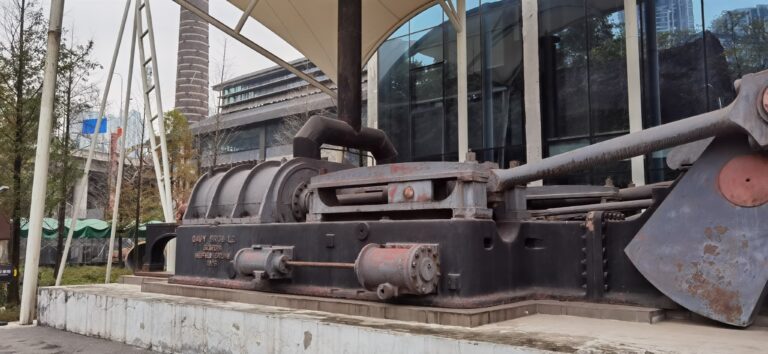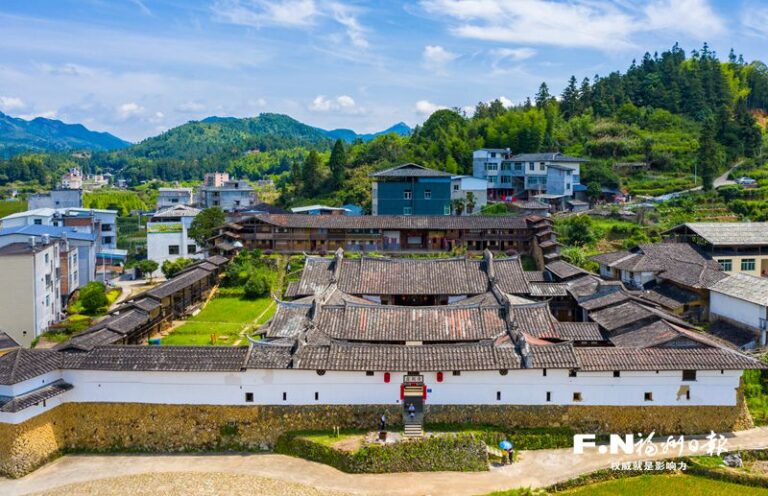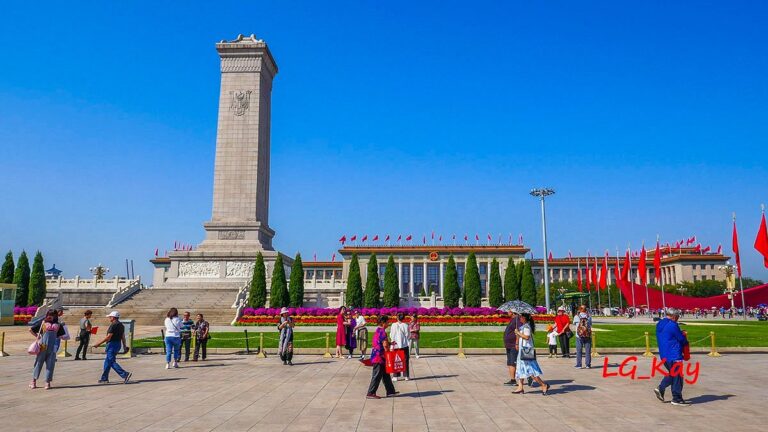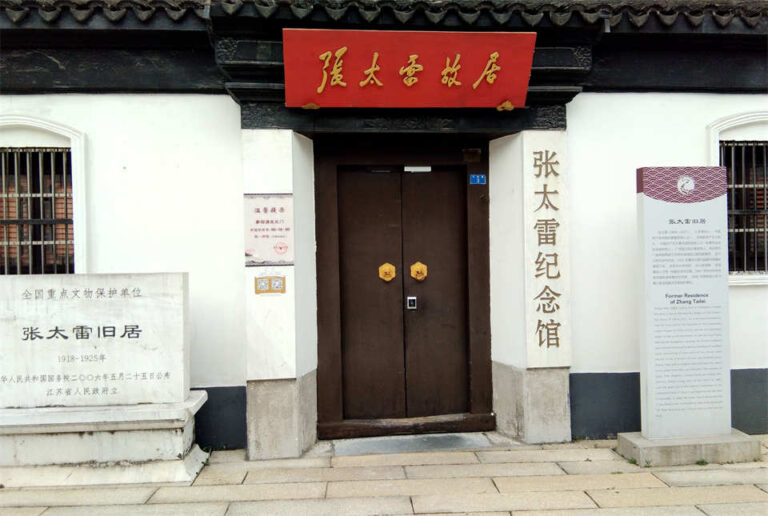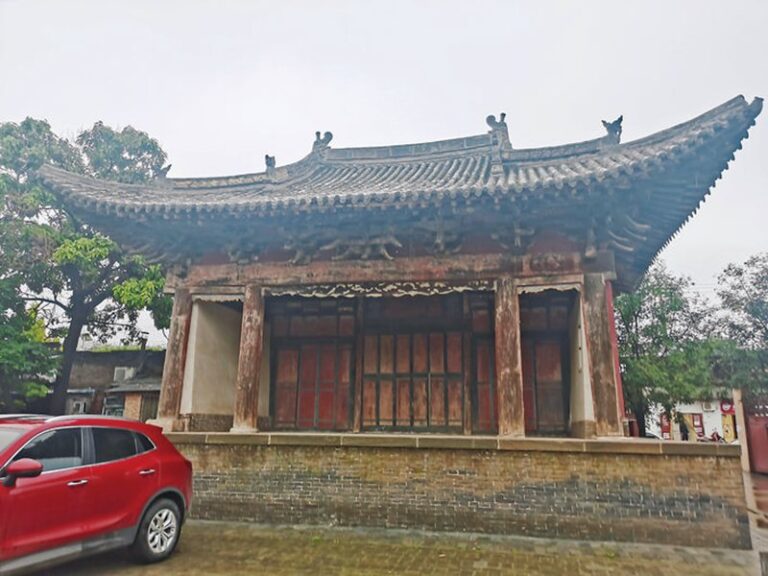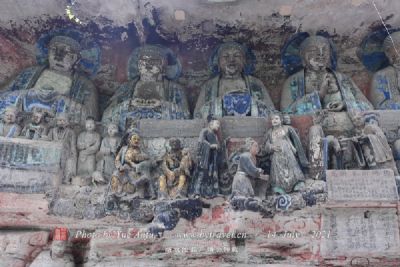Discovering Xuzhou Xiapi Gucheng Yizhi: A Journey Through Ancient History
An Essential Guide to Visiting Xuzhou Xiapi Gucheng Yizhi
In This Guide
- An Essential Guide to Visiting Xuzhou Xiapi Gucheng Yizhi
- The Rich History of Xuzhou Xiapi Gucheng Yizhi
- Main Highlights: What to See at Xuzhou Xiapi Gucheng Yizhi
- Planning Your Visit: A Practical Guide
- Tickets, Hours, and Booking
- How to Get There
- Local Cuisine and Accommodation
- Frequently Asked Questions
- Final Thoughts on Your Trip
Nestled in the heart of Jiangsu Province, Xuzhou Xiapi Gucheng Yizhi, or the Ruins of the Ancient City of Xiapi, stands as a testament to the rich tapestry of Chinese history. Once a thriving center of political power and cultural exchange, this archaeological site offers a unique glimpse into the past, captivating historians and travelers alike.
Located in the ancient town of Gu Pi within Suining County, Xiapi boasts a strategic position at the confluence of the Yishui and Sui rivers, making it a coveted stronghold throughout various dynasties. The city traces its roots back to the Shang Dynasty, evolving from a vassal state into a significant power during the Warring States period. It is famously linked to historical figures such as Zou Ji, whose fabled tales of political intrigue echo through the ages.
The site itself is a treasure trove of archaeological significance. Recent excavations have unearthed remnants of city walls, moats, and structures from the Han to Song dynasties, revealing layers of urban development and cultural evolution spanning centuries. As a designated national key cultural relic protection unit, Xiapi is undergoing preservation efforts aimed at safeguarding its historical legacy for future generations.
For travelers seeking both adventure and enlightenment, the Ruins of Xiapi offer an immersive experience that intertwines scenic beauty with profound historical insights. From exploring ancient fortifications to wandering through tranquil landscapes, visitors can step back in time and envision the vibrant life that once flourished in this remarkable locale. As you embark on your journey to Xiapi, prepare to uncover the echoes of history that resonate within its ancient walls, and let the stories of the past inspire your exploration of China’s diverse heritage.
The Rich History of Xuzhou Xiapi Gucheng Yizhi
Nestled in the Jiangsu province of China, the Xuzhou Xiapi Gucheng Yizhi, or Xiapi Ancient City Ruins, stands as a testament to the region’s rich historical tapestry. This site, located in Suining County, once served as a bustling center of power and culture, tracing its roots back to the Shang Dynasty. Xiapi, historically known as Guxiap, was a strategic stronghold positioned at the confluence of the Yishui and Sui rivers, making it a coveted prize during various dynastic struggles.
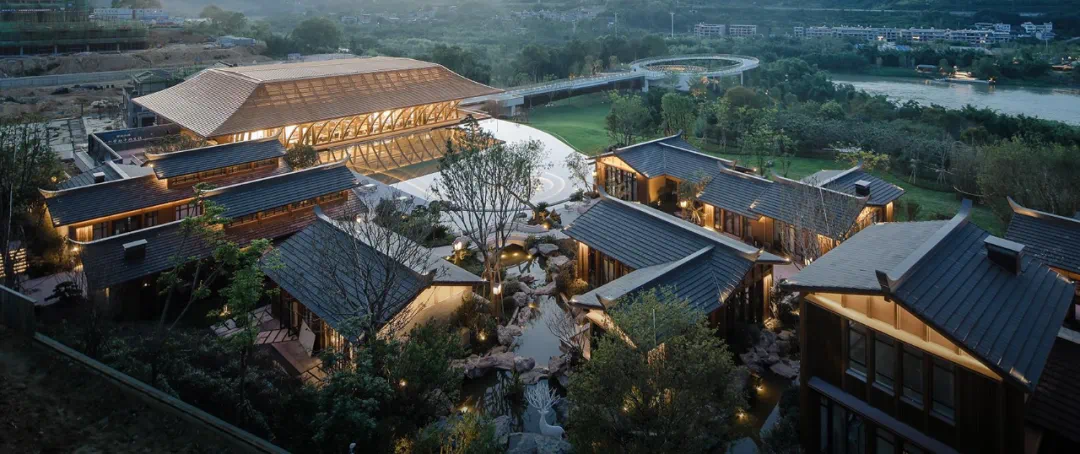
Xuzhou Xiapi Gucheng Yizhi.
The ancient city gained prominence as one of the states during the Shang Dynasty and continued to thrive through the tumultuous eras of the Warring States and Han dynasties. Notably, it was the land granted to Zou Ji, a significant figure in the classical text “Zou Ji’s Advice to King Qi,” which reflects its political importance during the Warring States period. Following this, Xiapi became the capital of the Kingdom of Chu, where the renowned general Han Xin was appointed as the King of Chu by the Han Emperor. This designation marked another peak in Xiapi’s historical significance.
The city witnessed intense power struggles during the Three Kingdoms period, where figures like Liu Bei, Cao Cao, and Lü Bu engaged in fierce battles for control. It was here that Lü Bu met his demise at the hands of Cao Cao, and where the legendary warrior Guan Yu chose to surrender to Cao Cao, further embedding Xiapi into the annals of Chinese military lore.
As history progressed, Xiapi continued to evolve. It was officially designated as a city during the Eastern Han Dynasty under Emperor Ming, who established the Xiapi Kingdom and appointed his son as its ruler. The area remained influential through the Eastern Jin and Southern Dynasties, with significant figures like Ge Hong, a noted alchemist, calling it home, and the founding emperor of the Song Dynasty, Liu Yu, serving as a local governor.
Despite its rich past, the ruins of Xiapi Ancient City were largely lost to time, preserved only in local chronicles and historical texts. Recent archaeological endeavors have revitalized interest in the site, with excavations revealing remnants of walls, moats, and structures dating back to various dynasties, including the Han and Song. In 2019, the Xiapi Ancient City Ruins were recognized as a key cultural heritage site, underscoring its historical value.
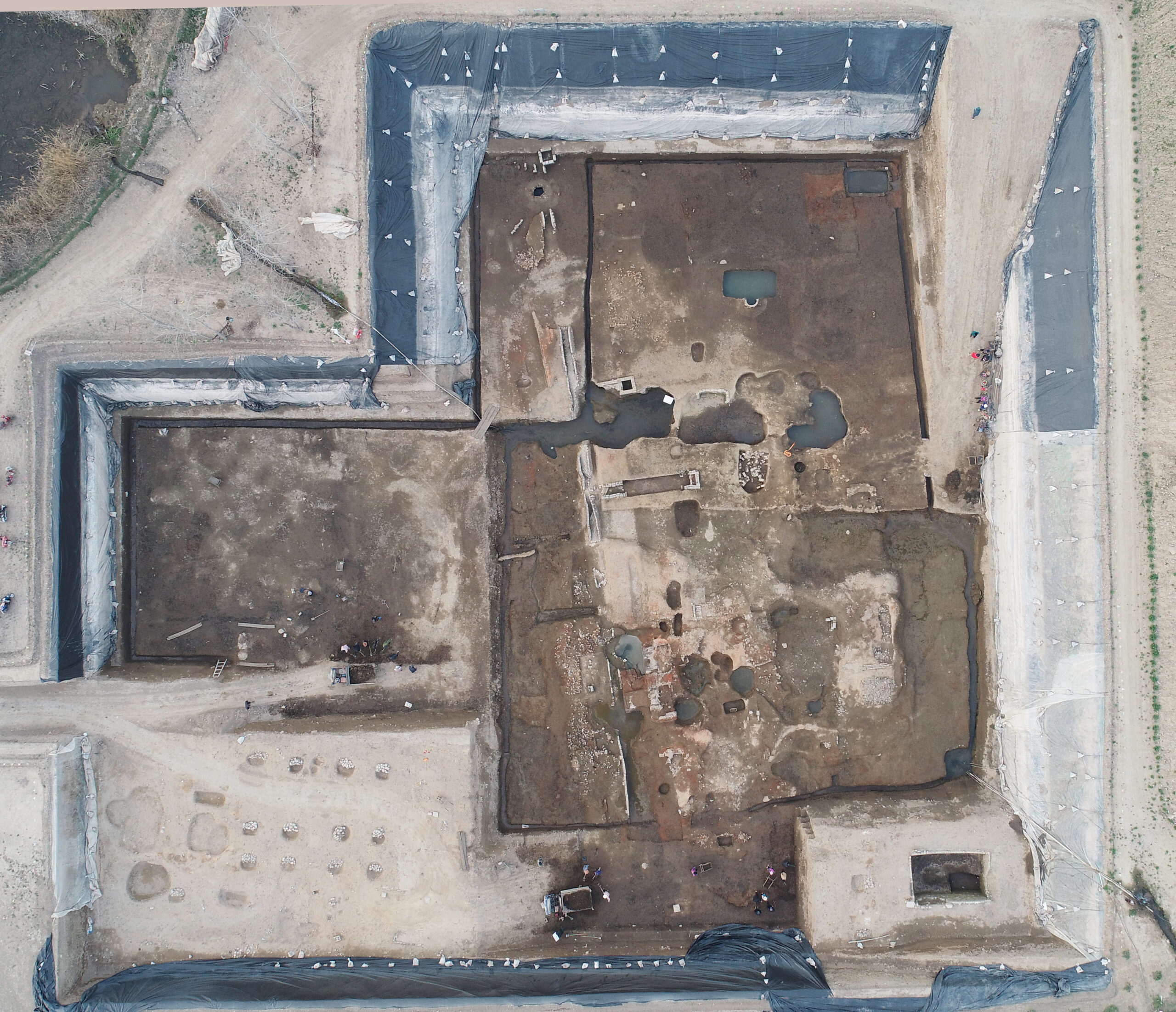
Xuzhou Xiapi Gucheng Yizhi.
Efforts are currently underway to protect and restore these ruins, ensuring that the legacy of Xiapi continues to be an integral part of China’s cultural heritage. With its deep historical roots and tales of valor, the Xiapi Ancient City Ruins not only capture the essence of a bygone era but also serve as a vibrant link to the past for future generations.
Main Highlights: What to See at Xuzhou Xiapi Gucheng Yizhi
Nestled in the heart of Jiangsu Province, the Xuzhou Xiapi Gucheng Yizhi (下邳故城遗址) offers a captivating glimpse into China’s rich historical tapestry. Once a prominent city during the Warring States period and the Three Kingdoms era, Xiapi was a strategic stronghold that witnessed significant military confrontations and political shifts.
Historical Significance
The ruins of Xiapi date back to the Shang Dynasty, making it one of the earliest recorded capitals of a feudal state. It gained prominence during the Han Dynasty, when notable figures like the military general Han Xin were associated with the city. The site is steeped in legends, including the notorious battles involving Liu Bei and Cao Cao during the Three Kingdoms period, where pivotal events like the execution of the warrior Lü Bu unfolded.
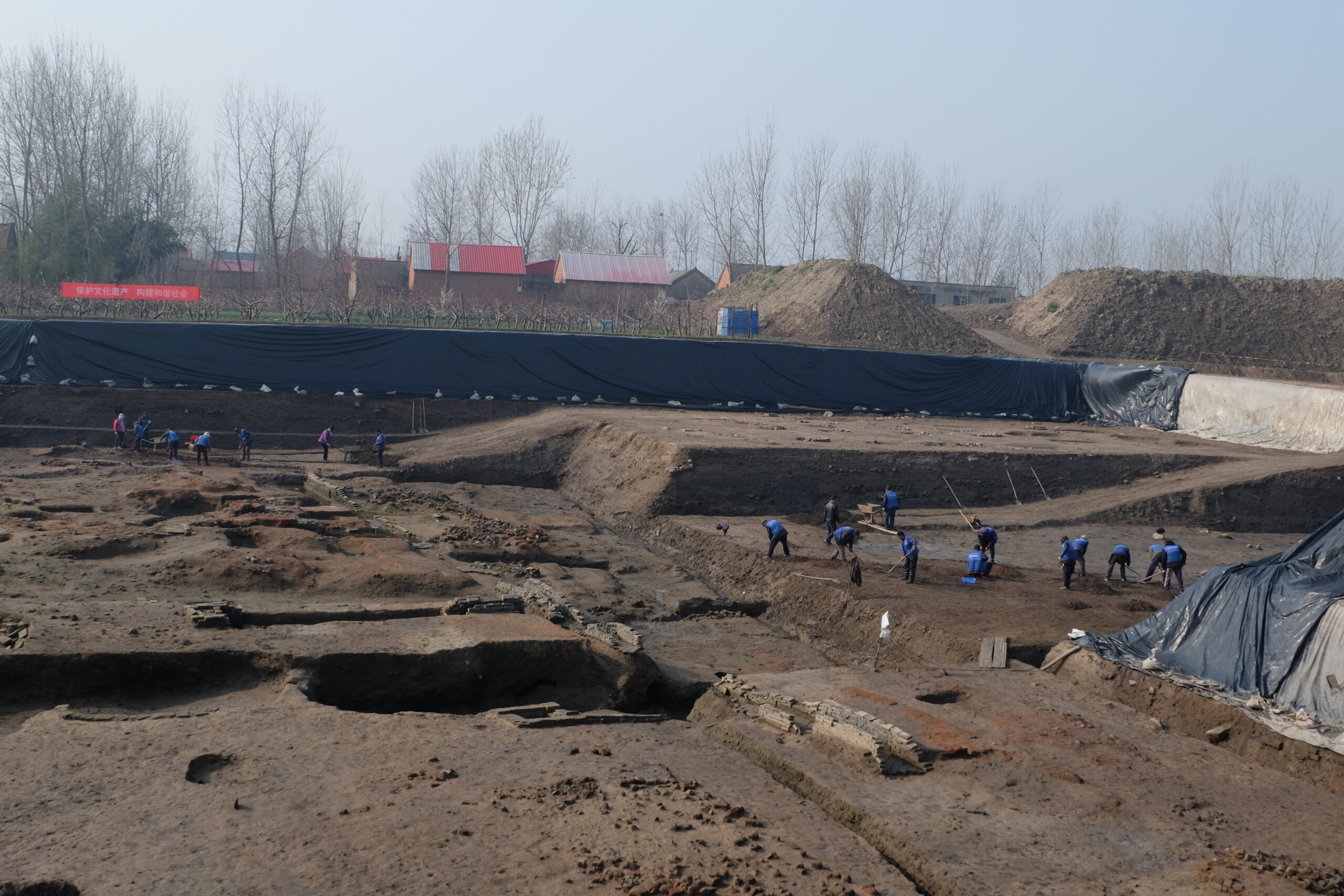
Xuzhou Xiapi Gucheng Yizhi.
Archaeological Discoveries
Recent archaeological efforts have unearthed substantial remnants of the city’s walls, moats, and structures that trace back to various dynasties, including the Han and Song. Excavations have revealed residential areas, wells, and even remnants of iron smelting, showcasing the city’s industrial capabilities. These findings highlight Xiapi not just as a military fortress but also as a center of trade and culture.
Cultural Heritage
Designated as a national key cultural relic protection unit, the Xiapi site is a testament to the intricate layers of Chinese civilization. The ongoing conservation efforts aim to preserve its historical essence while making it accessible for educational and tourism purposes. Visitors can explore the ancient city layout, capturing the spirit of a bygone era through its remnants.
Scenic Surroundings
The site is conveniently located near the confluence of the Yishui and Sui rivers, adding to its picturesque setting. Surrounded by lush landscapes, the area invites exploration beyond the ruins, making it an ideal spot for history enthusiasts and nature lovers alike.

Xuzhou Xiapi Gucheng Yizhi.
A Journey Through Time
Visiting Xiapi provides an immersive experience where one can walk the ancient pathways once trodden by legendary figures. The juxtaposition of rich history against modernity allows visitors to appreciate the continuity of culture through centuries, making it a must-visit destination for those seeking to understand the depth of Chinese heritage. Whether you’re a history buff or simply curious about China’s past, Xiapi offers a unique lens through which to view the evolution of one of the world’s oldest civilizations.
Planning Your Visit: A Practical Guide
Practical Guide to Visiting Xuzhou Xiapi Gucheng Yizhi (下邳故城遗址)
Located in the historical heart of Jiangsu Province, the ruins of Xuzhou Xiapi Gucheng (下邳故城遗址) offer a fascinating glimpse into the region’s rich past. This site, which served as a prominent city during various dynasties, is now a key national cultural heritage site. Here’s everything you need to know to make the most of your visit.
Getting There
Location: The ruins are situated in Gu Pi Town, Suining County, Xuzhou, Jiangsu Province. The site is easily accessible from major cities in Jiangsu.
Transportation:
– By Train: The nearest train station is Xuzhou Railway Station, which is well connected to major cities like Shanghai, Nanjing, and Beijing. From the train station, you can take a taxi or a local bus directly to the ruins.
– By Bus: Several local buses run from Xuzhou city center to Xiapi. Check local schedules for the most convenient routes.
– By Car: If you are driving, follow the G2 Beijing-Shanghai Expressway and take the exit towards Suining. The site has parking facilities available.
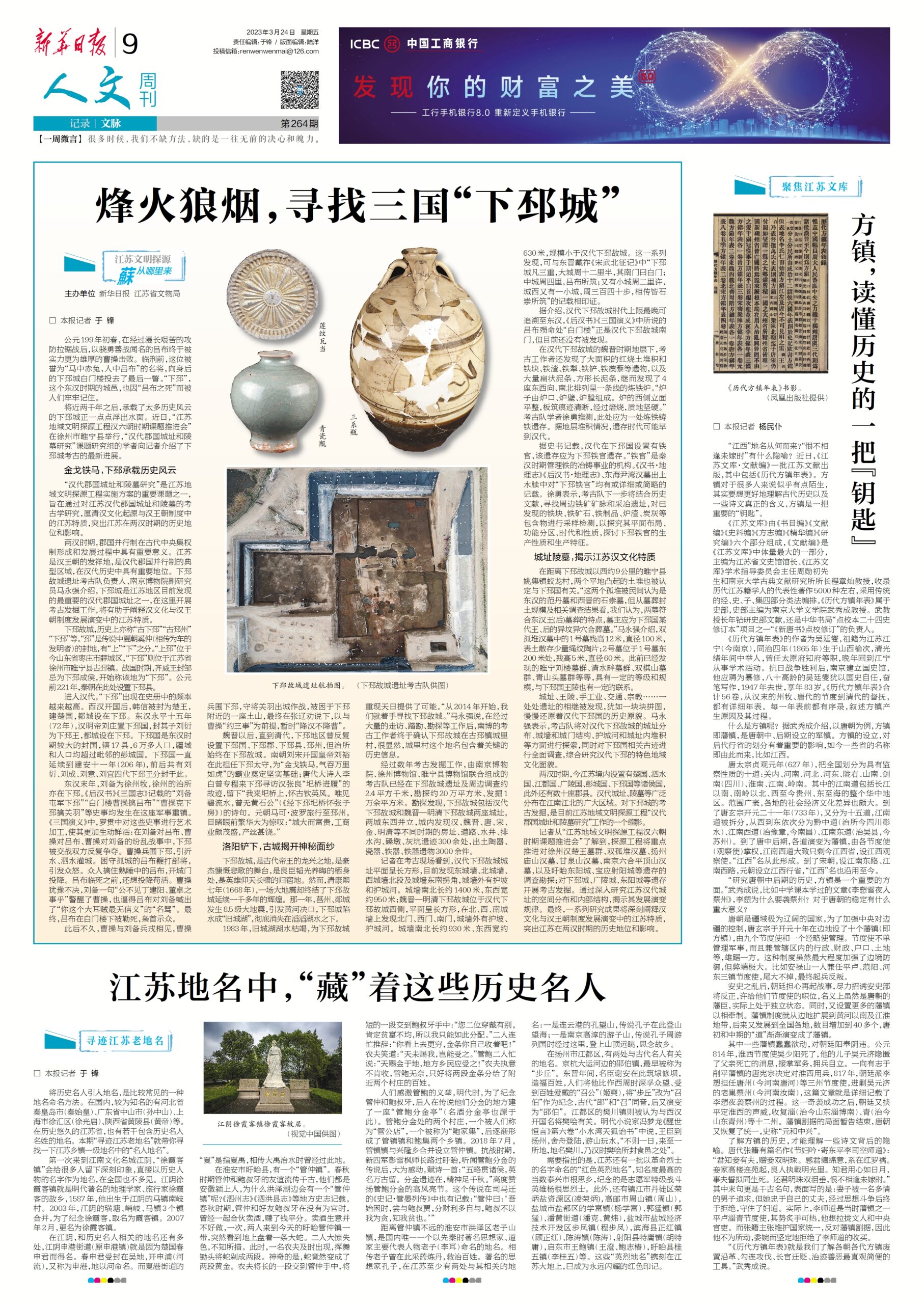
Xuzhou Xiapi Gucheng Yizhi.
Best Time to Visit
To fully appreciate the historical significance and beauty of the ruins, consider visiting during the spring (April to June) or autumn (September to November). The weather during these seasons is mild and ideal for outdoor exploration. Avoid the summer months if you prefer to skip the heat and high humidity.
What to See
The Xiapi Gucheng site is rich in archaeological wonders:
– City Walls: Explore the remnants of the ancient city walls that date back to various dynasties, providing insight into the defensive architecture of the time.
– Archaeological Finds: Discover artifacts from the Han to Song dynasties, including remnants of housing, wells, and roads that showcase the urban planning of ancient Xiapi.
– Cultural Exhibits: The site often hosts temporary exhibitions and educational programs highlighting the historical significance of Xiapi in Chinese history.
Visitor Facilities
- Guided Tours: To enhance your experience, consider joining a guided tour. Knowledgeable guides can provide context and stories related to the site’s history.
- Rest Areas: There are designated rest areas where you can take a break, enjoy a snack, or simply reflect on the beauty of the site.
- Restrooms: Clean restroom facilities are available on-site for visitor convenience.
Tips for a Great Visit
- Wear Comfortable Shoes: The ruins cover a considerable area, and exploring will require some walking. Comfortable footwear is essential.
- Bring Water and Snacks: While there may be food stalls, it’s a good idea to bring your own water and snacks, especially during hot weather.
- Respect the Site: As a cultural heritage site, it’s important to follow guidelines and respect the ruins. Avoid climbing on structures and leave no litter behind.
- Photography: Capture the beauty of the ruins, but be mindful of any restrictions on photography, especially in designated areas.
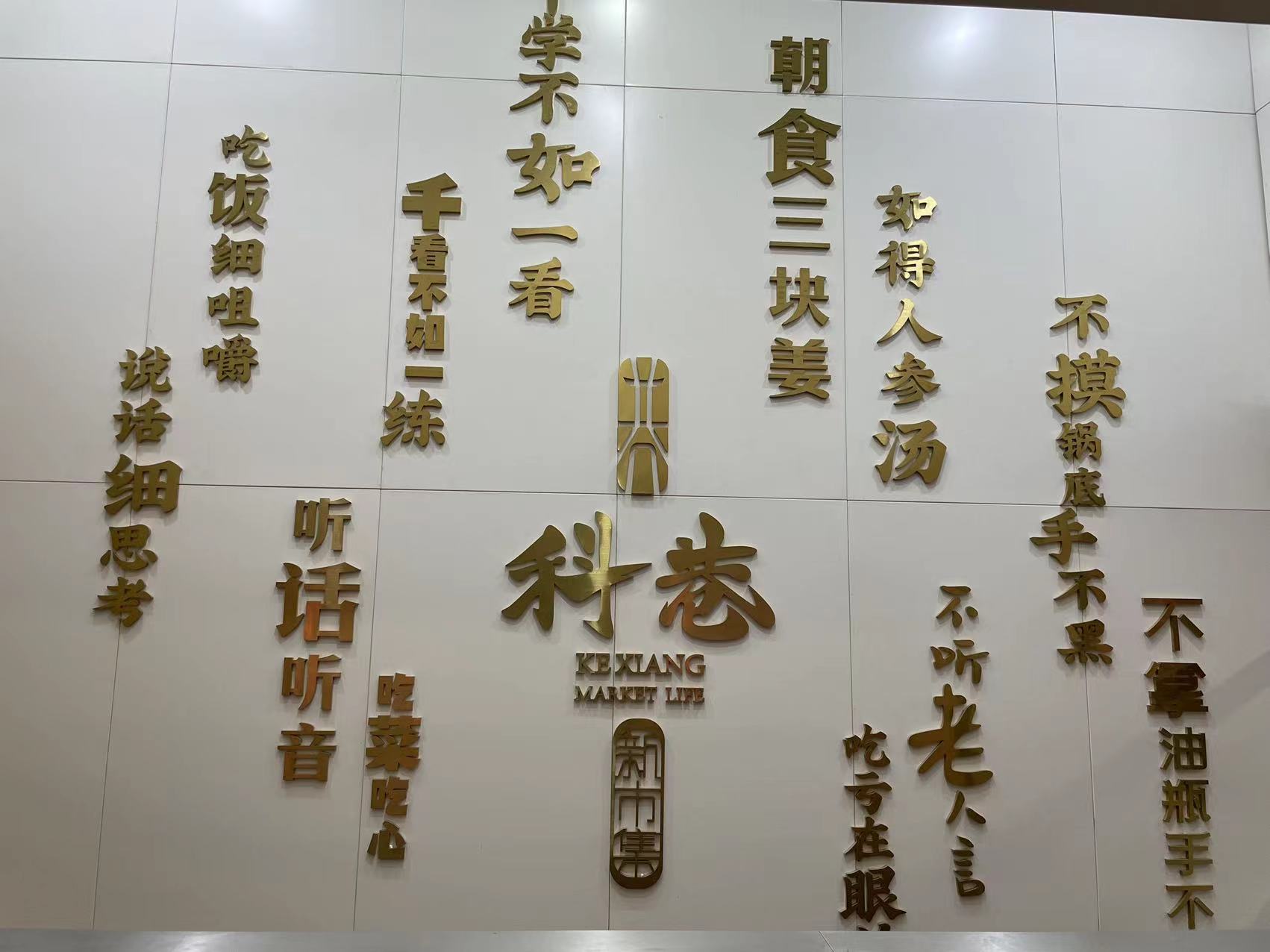
Xuzhou Xiapi Gucheng Yizhi.
Nearby Attractions
If you have extra time, consider visiting these nearby sites:
– Pizhou City: Known for its ancient architecture and cultural heritage, Pizhou is just a short drive away and offers additional historical experiences.
– Aishan Scenic Area: A beautiful natural area offering various recreational opportunities, including hiking and sightseeing.
Conclusion
The Xuzhou Xiapi Gucheng Yizhi is not just a historical site; it is a portal into the past, reflecting the cultural and historical evolution of the region. With proper planning and respect for the site, your visit will be both enriching and memorable. Enjoy your journey through time!
Tickets, Hours, and Booking
Visiting the Xuzhou Xiapi Gucheng Yizhi (下邳故城遗址), an important historical site in Jiangsu Province, is an enriching experience for history enthusiasts and casual travelers alike. This ancient city site, located in Suining County’s Gupi Town, reflects a rich cultural heritage dating back to the Shang Dynasty.
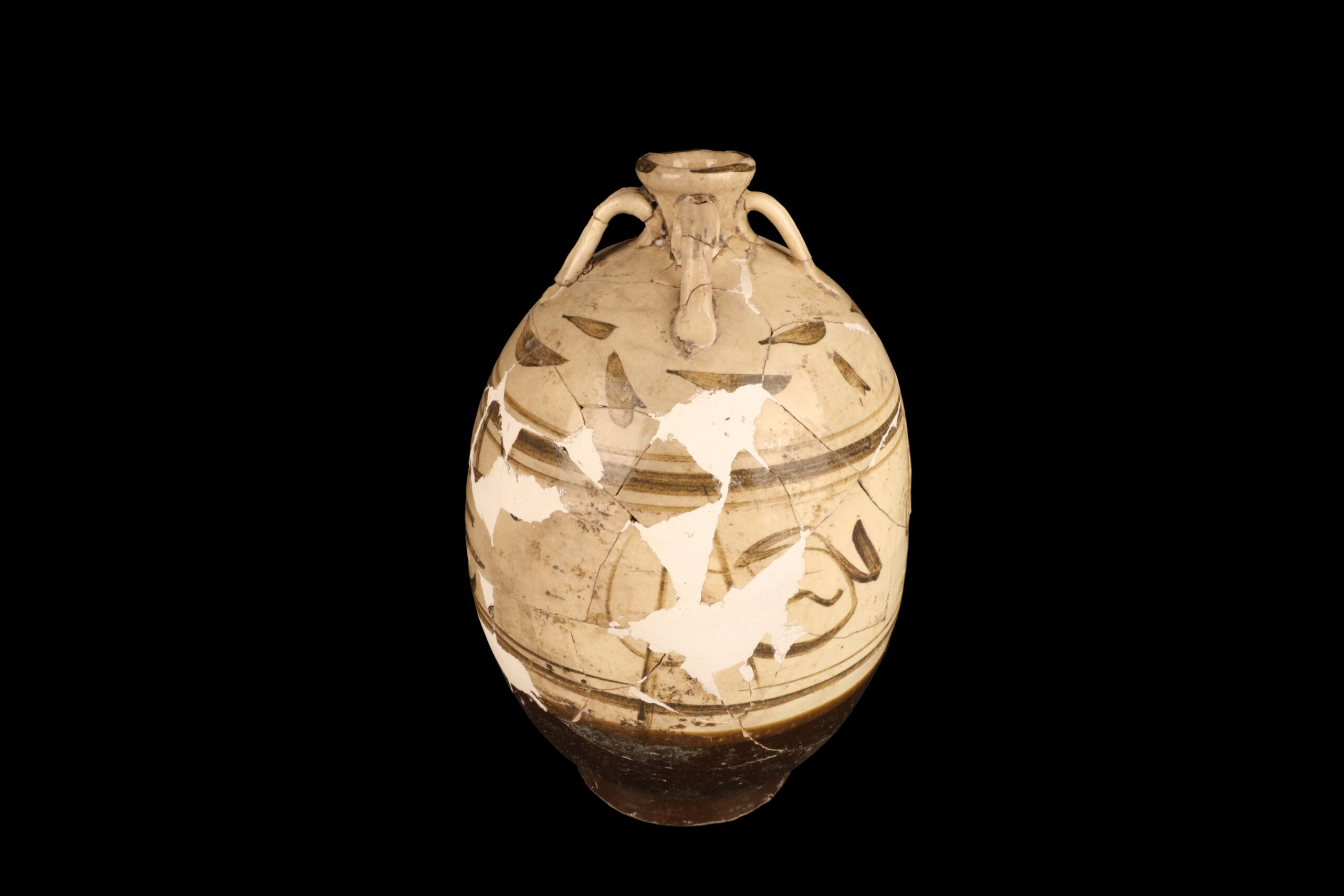
Xuzhou Xiapi Gucheng Yizhi.
Ticket Information
-
Admission Fee: Currently, there is no entrance fee required to visit the Xiapi Gucheng Yizhi. This makes it an accessible destination for anyone interested in exploring China’s historical sites without the burden of ticket costs.
-
Opening Hours: The site is open daily from 8:00 AM to 5:00 PM. Visitors are encouraged to arrive early to fully appreciate the expansive grounds and the various archaeological discoveries that have been made at the site.
-
Guided Tours: While self-exploration is encouraged, guided tours may be available on-site. It’s advisable to check for local guides who can provide insightful information about the history and significance of the ruins.
-
Accessibility: The site is generally accessible to all visitors, but it’s recommended to wear comfortable shoes as the terrain can be uneven.
-
Visitor Facilities: Basic amenities such as restrooms and informational signage are available on-site. However, it’s wise to bring water and snacks, especially if you plan to spend several hours exploring the area.
Whether you are delving into the rich tapestry of ancient Chinese history or simply enjoying a day outdoors, the Xiapi Gucheng Yizhi offers a unique glimpse into the past without any entry fees. Enjoy your visit!
How to Get There
Getting to and around Xuzhou Xiapi Gucheng Yizhi (下邳故城遗址) is essential for visitors looking to explore this historical site. Located in the ancient city of Xiap, which lies within Suining County in Jiangsu Province, the site is well-connected to major transportation hubs, making it accessible for both domestic and international travelers.
How to Get There
By Air
The nearest major airport is Xuzhou Guanyin Airport (徐州观音机场), approximately 80 kilometers from Xiapi Gucheng Yizhi. This airport has flights connecting to various cities across China, including Beijing, Shanghai, and Guangzhou. From the airport, you can take a taxi or a rideshare service directly to the site.
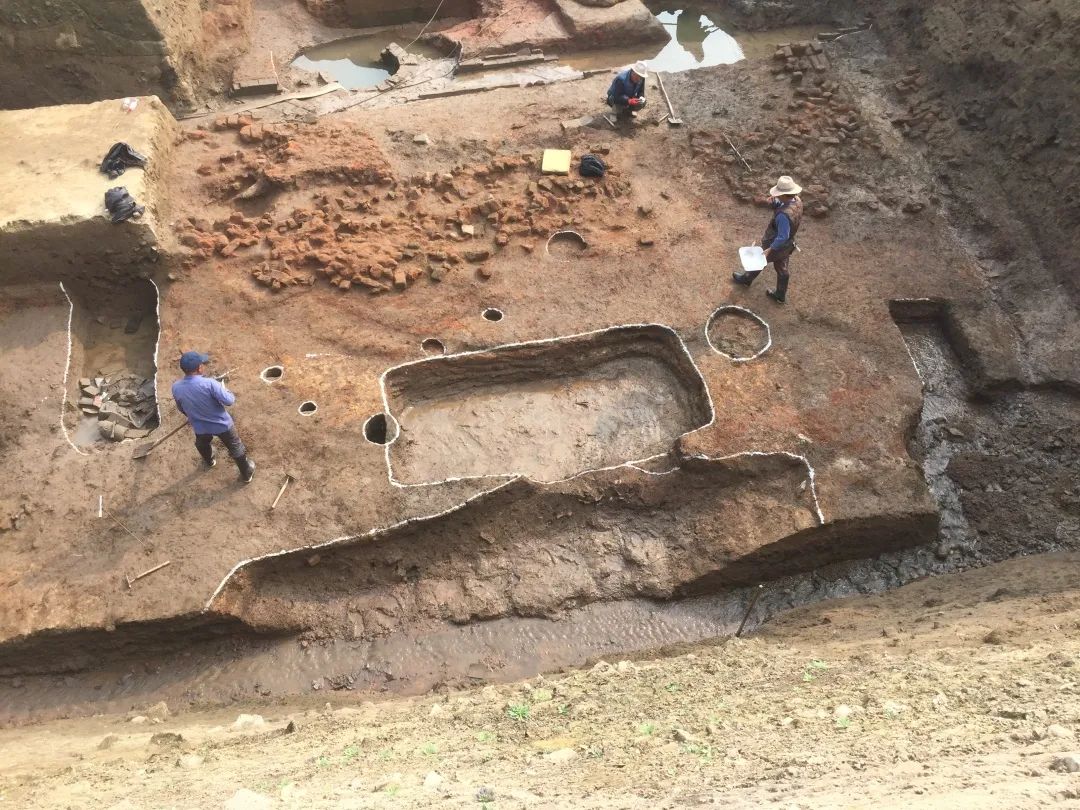
Xuzhou Xiapi Gucheng Yizhi.
By Train
Xuzhou is a significant railway hub with well-established connections to numerous cities. You can arrive at Xuzhou Railway Station (徐州火车站) or Xuzhou East Railway Station (徐州东站). High-speed trains operate frequently from major cities like Beijing, Shanghai, and Nanjing, making it convenient for travelers. Once you arrive at the railway station, you can take a local bus or taxi to reach the site.
By Bus
Long-distance buses also connect Xuzhou with various cities in Jiangsu Province and beyond. The main bus station in Xuzhou is Xuzhou Long-Distance Bus Station (徐州客运总站). From here, you can catch a bus to Suining County. Once in Suining, local taxis or buses can take you to the ancient city of Xiapi.
Local Transportation
Once you arrive in Xiapi, navigating the area around the ancient city is quite straightforward:
- Taxis: Taxis are readily available and are a convenient way to get around, especially if you’re planning to visit the Gucheng ruins and surrounding attractions.
- Public Buses: Local buses operate routes throughout Xiapi and Suining County. However, schedules may vary, and it might be helpful to check local listings or consult with your accommodation for the best options.
- Bicycles and Walking: The area around Xiapi is relatively flat and pedestrian-friendly, making it easy to explore on foot or by bicycle. Renting a bike can be an enjoyable way to take in the local scenery at your own pace.
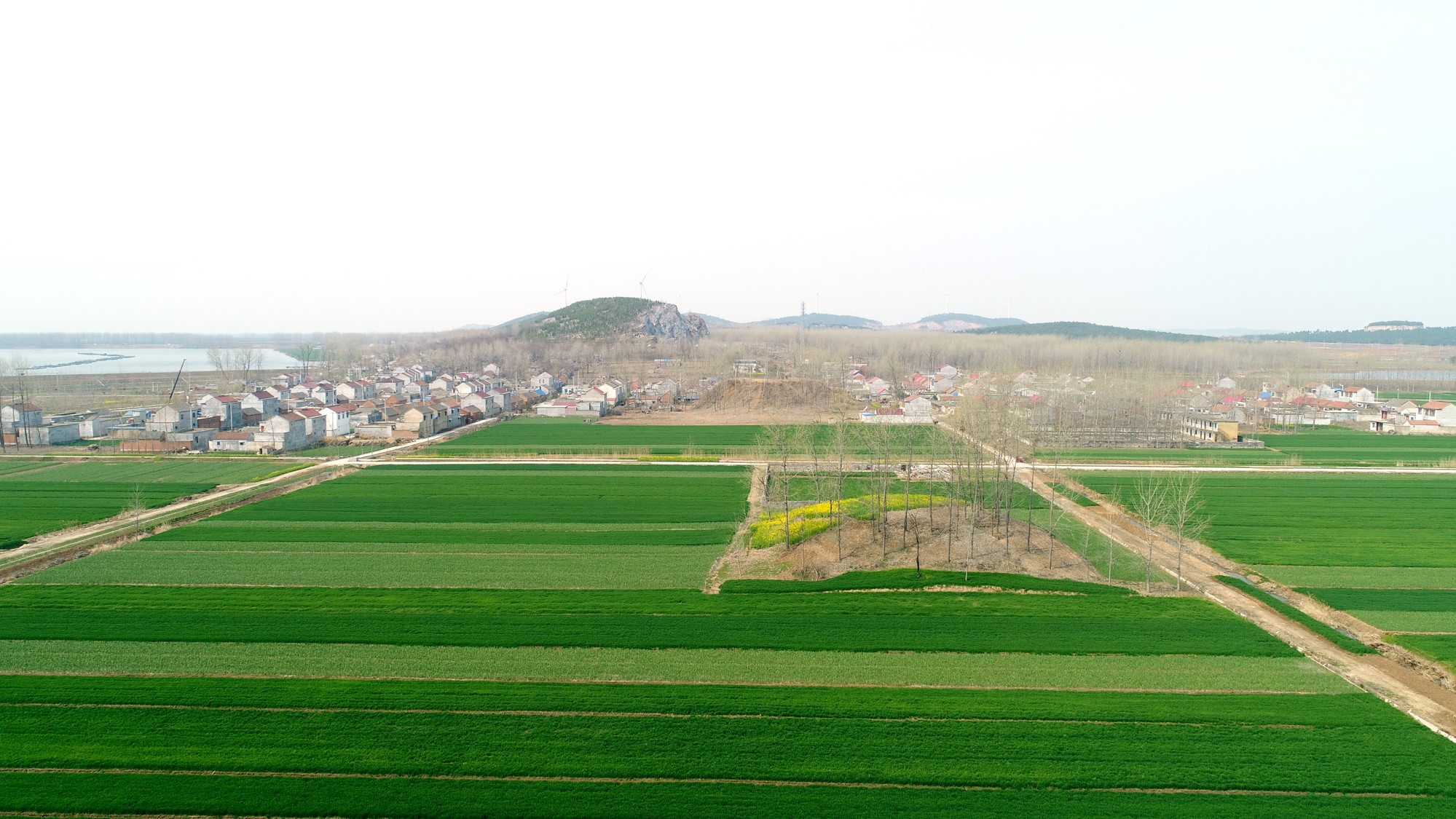
Xuzhou Xiapi Gucheng Yizhi.
Recommendations for Travel
- Plan Your Visit: If you’re coming specifically to see Xuzhou Xiapi Gucheng Yizhi, consider checking the opening times and any specific guidelines, as these can vary throughout the year.
- Language: While many taxis and transportation services may not have English-speaking staff, basic communication can usually be managed with translation apps or by showing written directions.
- Peak Seasons: If you plan to visit during holidays or peak tourist seasons, such as the Golden Week in October or the Spring Festival, allow extra time for travel as services may be busier than usual.
By following these transportation tips, visitors can easily reach and enjoy the historical significance of Xuzhou Xiapi Gucheng Yizhi, adding a rich layer to their exploration of China’s cultural heritage.
Local Cuisine and Accommodation
When visiting Xuzhou’s Xiapi Gucheng Yizhi, you’ll find that both the culinary scene and accommodation options are as rich and diverse as the historical tapestry of the region. Below are some recommendations to ensure your stay is both comfortable and delicious.
Dining Options
- Local Cuisine:
- Chuan Wei Restaurant: Renowned for its authentic Jiangsu cuisine, this restaurant offers a delightful range of local dishes, including Suan Ni Bai Rou (garlic pork slices) and Yang Rou Chuan (lamb skewers). The atmosphere is cozy, making it perfect for family dining.
-
Xiapi Da Jiao: For an authentic taste of Xiapi, this eatery is a must-visit. Specializing in traditional snacks, try their Dumplings and Noodle Soup, which are both hearty and flavorful.
-
Street Food:
-
Local Markets: Don’t miss the bustling street food stalls around the Xiapi area. Sample local delicacies such as Guo Bao Rou (sweet and sour pork) and Jiaozi (dumplings) at affordable prices. The lively atmosphere adds to the culinary experience.
-
Cafés and Teahouses:
- Tea House at the Ancient City: After exploring the ruins, relax at this charming tea house with a selection of local teas and pastries. It’s an ideal spot to unwind and enjoy the serene surroundings.
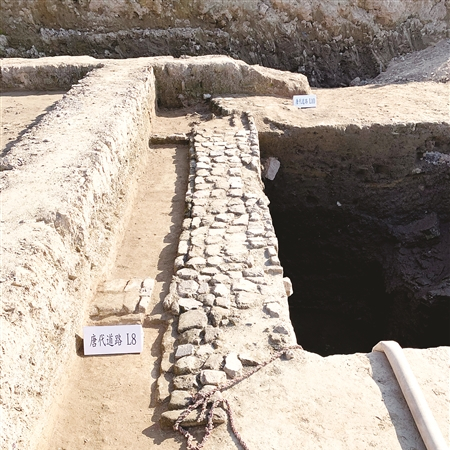
Xuzhou Xiapi Gucheng Yizhi.
Accommodation
- Comfortable Hotels:
- Xuzhou Huifeng Hotel: Located conveniently near the historical site, this hotel features modern amenities, including free Wi-Fi and a fitness center. The on-site restaurant serves a variety of Chinese and Western dishes, perfect for refueling after a day of exploration.
-
Holiday Inn Express Xuzhou: Offering comfortable rooms with contemporary designs, this hotel provides a complimentary breakfast buffet and easy access to local attractions. Its central location makes it a great base for your adventures.
-
Boutique Stays:
-
Xiapi Ancient Town Inn: For a unique experience, consider staying at this boutique inn, which combines traditional architecture with modern comfort. Guests can enjoy personalized service and authentic décor reflecting the region’s rich history.
-
Budget-Friendly Options:
- Backpacker Hostel Xuzhou: Ideal for budget travelers, this hostel offers dormitory-style accommodations and private rooms. It’s a great place to meet fellow travelers, share stories, and get local tips on places to visit.
Conclusion
With a variety of dining choices and accommodation options ranging from luxury hotels to charming inns, your visit to Xuzhou’s Xiapi Gucheng Yizhi will be both enjoyable and memorable. Savor the local flavors and unwind in comfortable settings as you explore this historically rich area.
Frequently Asked Questions
-
Where is the Xuzhou Xiapi Gucheng Yizhi located?
The Xuzhou Xiapi Gucheng Yizhi, or the ruins of the ancient city of Xiapi, is situated in Gu Pi Town, Suining County, Xuzhou City, Jiangsu Province, China. -
What is the historical significance of Xiapi?
Xiapi has a rich history dating back to the Shang Dynasty and was a prominent state during various historical periods, including the Warring States and the Han Dynasty. It was a vital military and cultural hub, witnessing significant events during the Chu-Han Contention and the Three Kingdoms period. -
What are the main features of the archaeological site?
The site includes remnants of city walls, moats, and various structures dating from the Han to the Song Dynasties. Recent excavations have uncovered ancient housing sites, wells, and extensive ironworking remains, highlighting the area’s historical importance. -
Is there an entrance fee to visit the site?
Currently, there is no entrance fee to access the Xiapi ruins, making it a great option for history enthusiasts and casual visitors alike. -
What are the best times of year to visit?
The best times to visit are during spring (April to June) and autumn (September to November) when the weather is mild and pleasant, enhancing your experience of exploring the outdoor archaeological site. -
Are there guided tours available?
Yes, guided tours are available at the Xiapi ruins. Visitors can gain deeper insights into the historical context and significance of the site through knowledgeable local guides. -
What nearby attractions should I consider visiting?
Nearby attractions include the historic town of Tushan, the scenic Mount Maling, and various cultural sites in Suining County that reflect the rich history of the Jiangsu region. -
How can I get to Xiapi from Xuzhou?
From Xuzhou, you can take a bus or taxi to Suining County, which is about 30 kilometers away. Public transportation is quite accessible, and travel times usually range from 30 minutes to an hour, depending on traffic conditions.
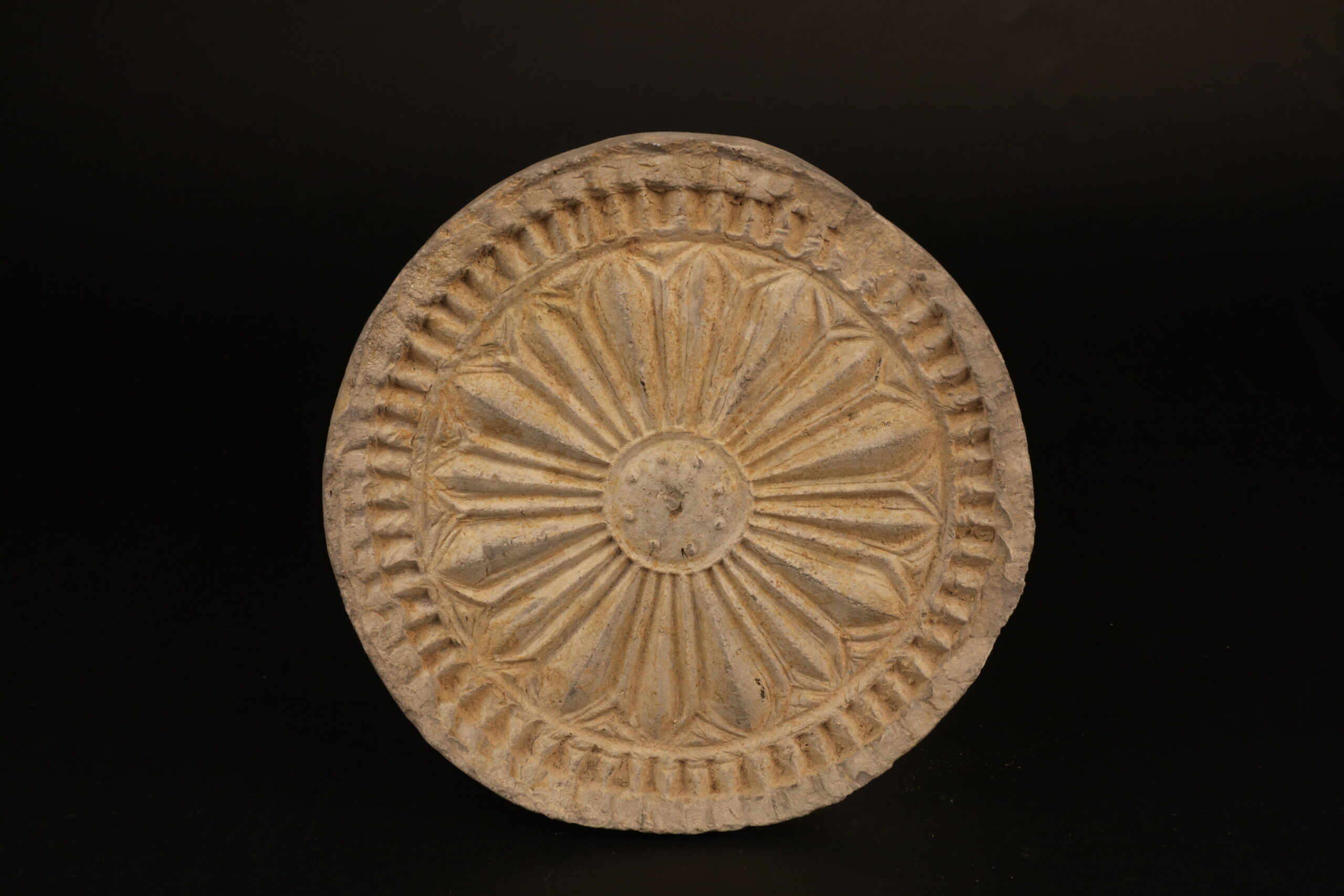
Xuzhou Xiapi Gucheng Yizhi.
Final Thoughts on Your Trip
Visiting the Xuzhou Xiapi Gucheng Yizhi is not merely a journey through ancient ruins; it is a passage into the rich tapestry of Chinese history. This archaeological site, steeped in stories of dynasties and legendary battles, invites travelers to explore its remnants and connect with a past that has shaped the present.
As you wander through the remnants of this once-thriving city, you will find echoes of the past in every stone and pathway. The site, which has witnessed the rise and fall of kingdoms, offers a profound understanding of the strategic importance of Xiapi throughout various historical epochs. The ongoing archaeological efforts serve as a testament to the commitment to preserving this cultural heritage for future generations.
For those seeking a deeper appreciation of Chinese history, a visit to the Xiapi Gucheng Yizhi is an invaluable experience. It encourages reflection on the lessons of history and the resilience of cultures that have stood the test of time. As you leave, take with you not just memories of the site, but also a renewed respect for the stories that shaped this land and its people. Embrace the opportunity to engage with history in a way that is both personal and profound, and let the spirit of Xiapi inspire your own journey through life.
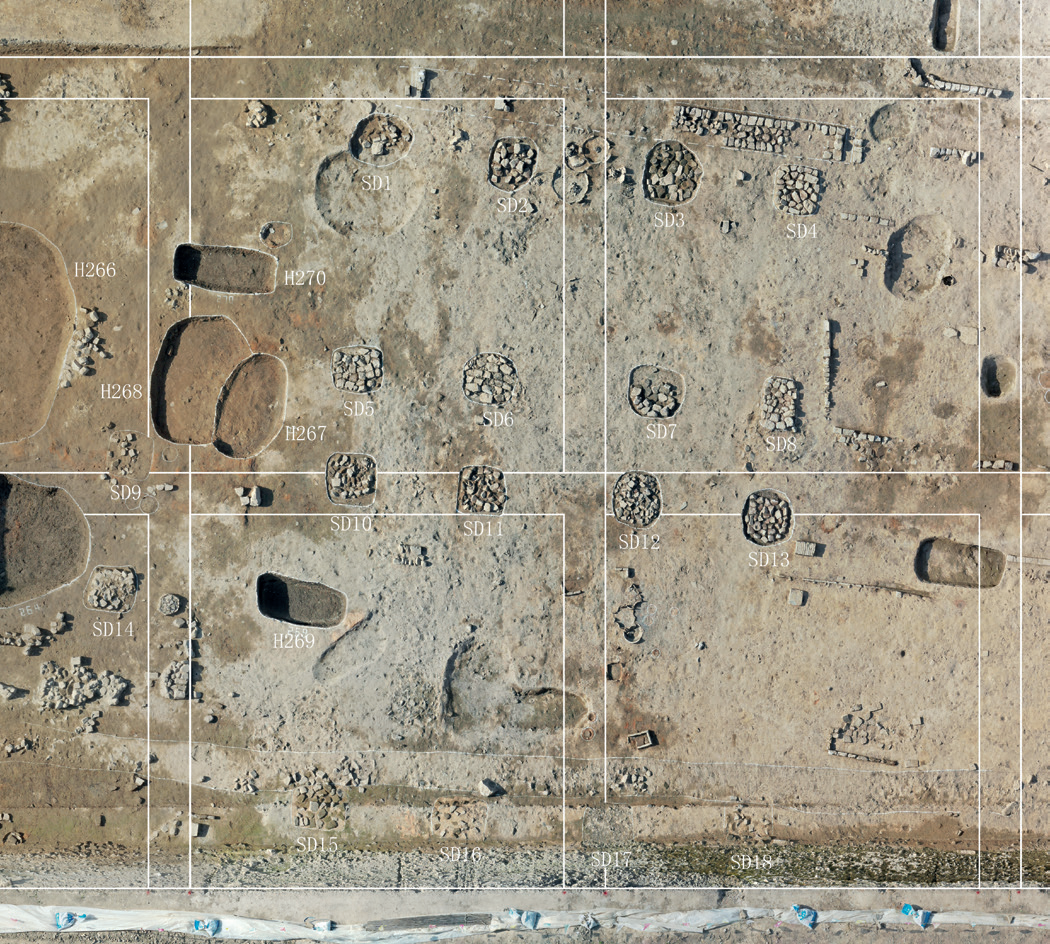
Xuzhou Xiapi Gucheng Yizhi.
